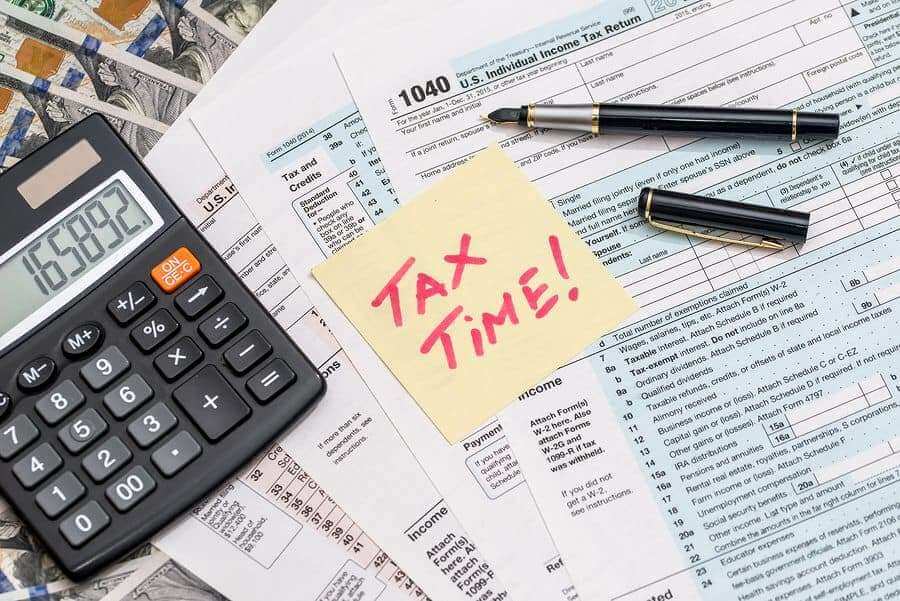Finding the Best CPA Near You for Your Taxes [A Full Guide]

Source: paymentcloudinc.com
How to Find the Best CPA Near You: The Costs, When to Hire One, and Best Qualities
Whether it’s tax season or not, you’ll need the help of tax preparers, NOT ONLY for tax planning.
Certified public accountants are tax pros who can help you with more than tax prep. They have both the expertise and the credentials to answer your tax return issues and financial questions.
Here’s who the ideal CPA is and how this tax pro excels from the rest.
What Is a Certified Public Accountant (CPA)?

Source: northeastern.edu
A Certified Public Accountant or a CPA possesses tax expertise and other factors beyond those of an ordinary tax preparer.
It’s easy to equate a CPA to a tax return because they are one of the tax pros who are accredited with unlimited access to represent you before the Internal Revenue Service (IRS) when tax season comes.
Being a CPA is a well-regarded profession because being one is not easy. Earning a CPA license requires exceptional qualifications to equip one with the proficiency to give out reliable tax advice.
Furthermore, the maintenance of the state license has its demands. This includes ethical requirements and further professional education. Fraud, negligence, and other ethics violations come with the risk of losing the license.
Uniform CPA Exam
All CPAs have to pass this highly-respected exam. Qualifying for this exam starts as early as college. A prerequisite for the exam is the minimum course hour requirement of at least 150 semester hours. A regular college degree has around 120 semester hours only.
Aspiring CPA candidates have to take additional subjects, a Master’s Degree, or other post-secondary education coursework. Moreover, it is preferential for CPA aspirants to have a degree in Accounting or related fields.
The Uniform CPA Exam tests one’s overall understanding of tax law and accounting practices. It has 4 tests that you have to pass within 18 months.
It covers accounting fields, such as Auditing and Attestation, Financial Accounting and Reporting, Tax Regulations, and Business Environment and Concepts.
After passing the exam, CPAs undergo training with a senior CPA with an active license. They have to complete a minimum of 1,800 work hours. This is equivalent to around one year of full-time work.
Work here means accounting-related work, such as accounting services, management advisory, financial advisory, tax, or consulting skills. This included the use of accounting in other states.
3. Understand Your Deductible Expenses
As you start a new business, you will naturally incur a lot of expenses. It’s necessary to understand which expenses can be easily deductible. One of the biggest ways to make deductions is by claiming business-related items as an expense. Such as stationary expenses, machinery expenses, medical and dental expenses, etc.
Apart from that, the general startup costs include- rent, payroll, taxes, professional services, utilities, logo design, website design, down payments, permits, and licenses. All these expenses are eligible for tax reduction. The IRS allows you to deduct up to $5,000 in business startup costs when the total startup cost is less than $50,000. If the cost exceeds $50,000 your allowable deduction will be reduced by the overage.
However, the other deductible tax expenses include- marketing, payroll, utilities, commercial lease, accounting, legal services, insurance, shipping and delivery costs, retail packaging, home office deduction, etc
What Does a CPA Do for You?
A CPA is more than a tax preparer. They manage important financial documentation and not only tax refund and tax documents.
The following are their other responsibilities, which prove to be of great help, especially if you’re self-employed or a small business owner:
- Tax Filing, Planning, and Advice – CPAs are the most qualified to handle all of your business tax needs. And no, we’re not talking about tax season only. This includes recording and IRS filing all year round.
- Compliance – This encompasses tax and finance-related issues. CPAs have a thorough knowledge of tax and finance. This allows them to spot problems before they become an issue preventing an audit.
- Consultancy – CPAs can provide you with sound tax advice. They can also guide you through making important financial decisions, budgets, and risk management. They offer dependable financial planning support.
- Representation – The licenses of CPAs authorize them to represent and negotiate for you with the IRS.
- Forensic Accounting – CPAs can keep track of your financial books to prevent fraud.
- Bookkeeping – They can do the nitty-gritty financial recording for you. They can create, maintain, and double-check financial books throughout your entire business cycle.
Payroll – CPAs help small business owners set their businesses up with payroll platforms that make them do without pricey registered trademarks payroll software.
What’s the Average Cost of a CPA?

Source: franklin.edu
Based on the US Bureau of Labor Statistics, a CPA’s median hourly rate is $40.
This is ON TOP of other fees covering specific support and services. The bottom line would depend on your business and the assistance that you’ll need.
The usual additional expenses include hourly rates, administrative fees, paperwork fees, and other fees and services.
It may be difficult to have an exact amount of how much your prospective CPA would cost you but enumerating the services you might need would help give you a close estimate.
Through this, you can decide better on the cost and benefits of having a CPA over a free edition accounting software program available. Online reviews of both your CPA, if any, and your potential software program may help.
What’s the Difference Between a CPA and a Tax Accountant?
Every CPA is a tax accountant. Not every tax accountant is a CPA.
Tax accountants have a bachelor’s degree in accounting or finance. CPAs are advanced tax accountants through additional designations and certification.
The certification of a tax accountant to become a CPA comes from the Uniform CPA Exam and state licensing requirements.
The exam is a comprehensive assessment of knowledge of business, accounting, tax, and audit. Continuing education is another supplementary requirement for updates on accounting laws and regulations.
The license comes with the fiduciary responsibility toward clients. Regular accountants do not have any license to lose in case they act against the best interest of their clients.
What’s the Difference Between a CPA and a Tax Preparer?
All CPAs are tax preparers. Not all tax preparers are CPAs.
Tax preparers are tax professionals who can handle your tax return preparation and filing. Three accredited professionals can help you with tax prep. They are the enrolled agents, CPAs, and tax attorneys.
An enrolled agent is a tax professional with a federal license from the IRS. They are authorized to provide tax help. They can prepare tax returns, provide advice, and represent taxpayers. Enrolled agents obtain their qualifications through an exam or previous IRS employment.
A CPA is often known for filing your tax return, but the complete continuing education requirements for the profession qualify them for more than that. Aside from preparing tax returns, a CPA can provide credible financial planning and advice.
How About a Tax Attorney?
A tax attorney is a tax professional, specifically a lawyer, who specializes in tax matters. They provide legal advice along with tax preparation services.
Tax attorneys are authorized to represent a taxpayer before the IRS and Tax Court.
What to Look for in a Good Certified Public Accountant
Employing a qualified CPA will help you through not only tax season, but also throughout the rest of your business cycle. It won’t be something temporary.
As such, look for these 4 Rs as you hire one – Record, Referrals, Registration, and Reputation.
Record
Find a CPA with experience and familiarity with your business and industry. If you’re self-employed, it would be more helpful to have someone who can understand your needs and provide you with meaningful discussion.
As such, look for these 4 Rs as you hire one – Record, Referrals, Registration, and Reputation.
Referrals
If the question “where can I look for a good CPA near me?” is on your mind, you can start with referrals. Other clients, especially those in your industry, can refer you to the best leads for a good CPA. If you don’t have anyone to ask, the American Institute of CPAs can also provide leads.
Registration
Validate the registration of your CPA candidate. You can check the free edition of the CPA Verify tool to see if the certification status of your CPA candidate is active and updated.
Reputation
Check the reputation of your candidate to make sure you end up with a highly qualified CPA. You can do so with online reviews available. You can also check their Better Business Bureau accreditation for further records.
How to Find the Best CPA and Tax Accountant Services Near You

Source: softwaresuggest.com
Anyone can promise a larger refund or maximum refund on their accountancy website. This doesn’t automatically make them the best for you.
Here are our tips for you to find a CPA and tax accountant services that are fit for you:
- Ask about what they’re good at. CPAs have specializations. They include accounting areas, such as tax preparation and business, government, and forensic accounting. Look for someone who has the know-how for your needs.
- Validate their identification number. A Preparer Tax Identification Number (PTIN) is a requirement of the IRS for CPAs who prepare taxes. You can perform a verification of a PTIN using the IRS Return Preparer Office Directory.
- Search for their license. You can confirm the license of your CPA candidate using their records with the state’s board of accountancy. CPA databases often provide important information, such as license status, issue, and expiration dates. They also record disciplinary actions and suspensions here.
- Assess their experience. All CPAs may have passed the CPA exam, but it still takes experience for a deeper understanding of the tax code. An indicator is e-filing services. IRS rules mandate tax preparers who file at least 11 tax returns in a year to provide this. If CPA candidates electronically file tax returns, chances are they are experienced already.
- Prefer that they e-file. E-filing your tax return has many benefits. It may come with e-file fees, but it assures accuracy and proper recording. It provides you with security and convenience. You may even enjoy faster tax refunds through direct deposit.
- Confirm their willingness to represent you. CPAs should sign your tax return and represent you before the IRS. If your candidate is unwilling to affix their signature or represent you, we suggest you look for someone else who will.
- Ask for advice. A good CPA isn’t involved only during tax season. Good CPAs offer sound tax and financial planning advice throughout the year. This allows you to maximize your tax savings for the upcoming years.
- Evaluate the costs. The usual charging of CPAs includes an hourly rate, a flat fee, additional fees, and other payment options. Charging is based on the complexity of your taxes. Look out for CPAs who charge based on a percentage of your tax refund. This payment term will not be very beneficial to you. You may want to avoid this arrangement.
- Ask if they provide audit defense. No matter how hard you may try to avoid an audit, it is, at times, unavoidable. When this happens, it would be better for a qualified tax pro to represent you before the IRS or Tax Court. A qualified CPA knows what documentation and records to comply with. They are licensed and experienced. This makes them more likely to perform better negotiations on your tax return than you personally.
Look beyond. When all else fails, consider looking for CPAs and tax advisors beyond your geographic location. You don’t have to settle with a tax preparation service or CPA within your area. It is most important that you are comfortable with your choice. It’s going to be a working relationship, after all.
Check the reputation of your candidate to make sure you end up with a highly qualified CPA. You can do so with online reviews available. You can also check their Better Business Bureau accreditation for further records.
When Should You Hire a Certified Public Accountant (CPA)?

Source: merchantmaverick.com
As long as money, expenses, and income are involved, your accountant needs to know about it.
This includes life changes, such as getting married or getting out of one, rental property investments, business startups, and the like.
These are the crucial times you should consider hiring CPAs.
Tax Time
When it’s time for tax, CPAs can do the nitty-gritty work for you. This includes preparing tax documents, filing tax returns, and planning out how to minimize your tax payable for the next year.
The involvement of the IRS can be inevitable. You may have an inquiry about your tax return, or worse, they may be auditing your business. The best to represent you with them are CPAs.
If you’re self-employed and used to doing your taxes yourself, take business taxes differently.
The tax situation is certainly more complicated than personal taxes — more so if your home and small business link up.
Would you know which expenses are deductible?
Would you be able to deduct your home office if you have another desk somewhere else?
Should your business have ownership over your vehicle if you use it mainly for work?
Aside from these mind-boggling thoughts, hiring a CPA to help you with your taxes can save you much time, effort, and resources. This is true, especially if you engage in business or employment in multiple states and countries.
CPAs can help you avoid the hassles of an IRS audit through proper compliance with tax laws. They are up-to-date with tax code changes. They can help you understand and even save resources from the changes when applied to your business.
A good CPA can also help you avail of the right deductions that you qualify for. Too many and too vague deductions may trigger an IRS audit. Too few deductions throw away resources you’re spending on taxes instead of using them for your business.
This includes life changes, such as getting married or getting out of one, rental property investments, business startups, and the like.
These are the crucial times you should consider hiring CPAs.
Starting a Business
As soon as you start your own business, you should hire a CPA. This may sound like a big move, especially if your funds are limited, but it is an investment. Like other startup costs, it’s a deductible expense, too.
Speaking of deductible expenses, when you’re starting a business, you’ll need to know which startup costs are deductible. If you started your business as a hobby, you would also need to know how the IRS will classify your business. A CPA can help you with these.
You may have the vision and the goal, but a CPA can help you set your business up.
The touch of a CPA’s business setup can help you avoid costly mistakes and give your business a kickstart in terms of the accounting support it needs.
Your business structure will have tax, liability, and reporting implications. Your CPA can provide advice as to which legal structure would be best for your business.
Whether you choose a sole proprietorship, partnership, LLC, corporation, or co-op, your structure would affect your licenses and other business requirements.
Moreover, your CPA can establish your accounting practice and convert it as needed. New businesses often use cash accounting over accrual accounting because it’s simpler.
But there are times when the IRS requires accrual accounting. CPAs can do the necessary conversion for you or perform the accrual method instead.
Acquisitions, Mergers, Sales, and Closures
Whether you run small businesses, own rental property, or have foreign investments, life isn’t and will never be linear. Structural or operational changes often happen along the way.
You may be acquiring another business or merging with another company. You may be selling or closing your business. You may be deciding to take on or dissolve a partnership.
These business moves have their business and personal tax implications.
The best person to help you decide on these financial moves is a CPA. They can help you perform due diligence and review financial records. They can update you with the fair market value of your business and put together its financial statements.
Hiring a CPA can help you not only with the decisions that you will make but also with the detailed paperwork that backs up your possible business changes.
Special Circumstances
Unforeseen events may also require you to hire a CPA.
An audit notification from the IRS can be delivered to you at any time. Even simple requests from the IRS for additional information about a tax return can come at any time.
The best representation you can get is a CPA. They have been dealing with the IRS throughout their profession. They can give the best response for you and provide the right information to settle an issue faster.
Another instance when you might need the help of a CPA is when you take on a small business loan. This capital injection often happens only as needed and, thus, unplanned. A CPA’s involvement is valuable through every step of this process.
A CPA can advise you which financing type is the most reasonable for you and your goals.
They can give an approximate figure that will help your business as well as one that you can afford. You’ll also need their credentials in the required financial statements for your applications.
Unexpected vacancies in positions from a family member passing or a divorce can have tax implications, too. A CPA can estimate the value of the business and prepare financial statements for a sale.
Final Words

Source: forbes.com
A CPA is a tax expert who exceeds a regular accountant through their degree, certification, continuing education, and experience.
They provide you with valuable expertise and advice for your taxes and financial organization.
Choosing a good CPA is important because you build a working relationship with them not only during tax season, but throughout the rest of your business and personal life events.

